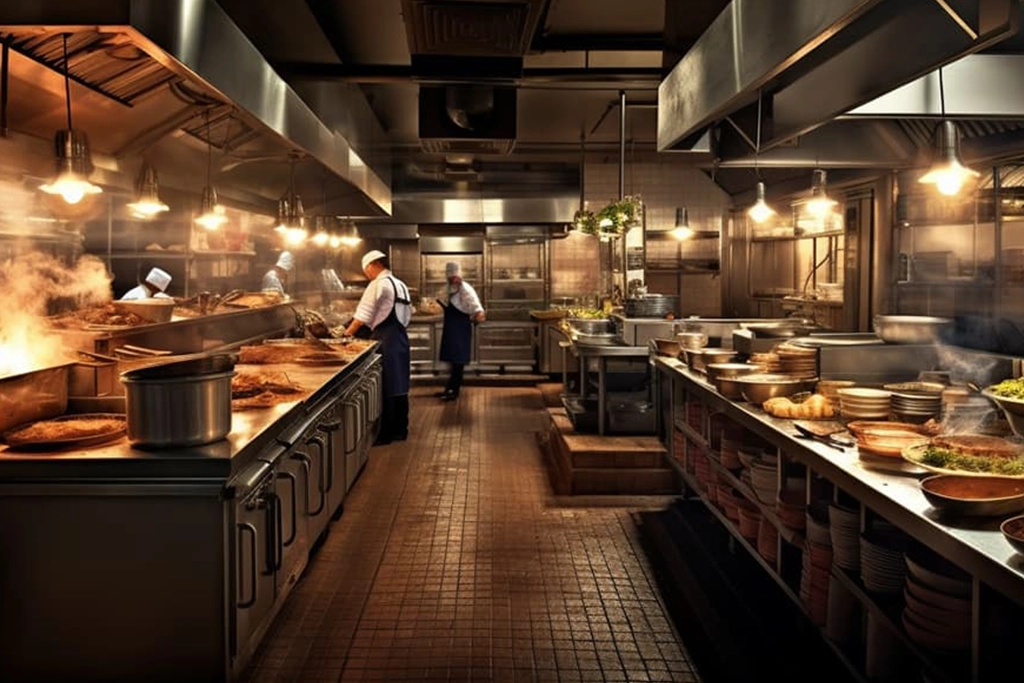The Importance of Marketing in Cloud Restaurants
In the rapidly evolving food industry, cloud kitchens, also known as ghost or virtual kitchens, have emerged as a revolutionary concept. These delivery-only restaurants, without traditional dining spaces, rely heavily on digital platforms to reach their customers. With the absence of physical storefronts, The Importance of Marketing in Cloud Restaurants marketing becomes the lifeline for cloud restaurants, driving visibility, customer engagement, and ultimately, business success. This article delves into the critical role of marketing in cloud restaurants and offers strategies to thrive in the competitive market.

The Importance of Marketing in Cloud Restaurants
Why Marketing is Crucial for Cloud Restaurants
Cloud restaurants operate in a highly competitive digital marketplace. Unlike traditional brick-and-mortar restaurants, they cannot rely on foot traffic or in-person customer experiences to build their brand. Here’s why marketing is indispensable:
1 Visibility and Brand Awareness: Without a physical presence, cloud restaurants must rely on digital marketing strategies to make potential customers aware of their existence. This includes utilizing SEO, social media, and food delivery apps to increase visibility.
2 Building Trust and Credibility: In an industry where customers cannot physically visit a restaurant, establishing trust through online reviews, social proof, and a strong online presence becomes vital. Marketing efforts focused on customer testimonials, ratings, and consistent communication can help build credibility.
3 Customer Retention and Loyalty: Effective marketing strategies, such as loyalty programs, email marketing, and personalized promotions, can help cloud restaurants retain customers and encourage repeat orders, which are essential for long-term success.
read next to The Importance of Marketing in Cloud Restaurants
How Cloud Restaurants Work in 2024
The Importance of Technology in the Success of Cloud Restaurants
How can Yami Hub help you build cloud restaurants?
Marketing Strategies for Cloud Restaurants

The Importance of Marketing in Cloud Restaurants
To succeed in the competitive cloud kitchen space, restaurants must implement a mix of digital marketing strategies tailored to their target audience. Here are some key strategies:
1 Search Engine Optimization (SEO): Optimizing the restaurant’s website and menu for search engines can help attract organic traffic. This includes using relevant keywords, optimizing images, and ensuring a user-friendly website design.
2 Social Media Marketing: Platforms like Instagram, Facebook, and TikTok are crucial for showcasing your dishes, engaging with customers, and running targeted ad campaigns. Visual content, such as mouth-watering photos and videos, can drive engagement and attract new customers.
3 Partnerships with Food Delivery Apps: Collaborating with popular food delivery platforms like UberEats, DoorDash, or Zomato can boost visibility. These platforms often offer marketing tools and promotional opportunities that can help your cloud restaurant stand out.
4 Influencer Marketing: Partnering with food bloggers, influencers, and local celebrities can help build your brand’s reputation and reach a broader audience. Influencers can provide authentic reviews and recommendations that resonate with their followers.
The Role of Data-Driven Marketing
Data-driven marketing is essential for cloud restaurants to refine their strategies and enhance customer experiences. By analyzing customer behavior, preferences, and feedback, cloud restaurants can:
1 Personalize Customer Interactions: Use data to tailor marketing messages and offers to individual customer preferences. Personalized marketing can significantly increase customer satisfaction and loyalty.
2 Optimize Menu Offerings: Analyze order patterns to identify popular dishes and adjust the menu accordingly. Data insights can also help in developing new dishes that cater to customer preferences.
3 Improve Marketing ROI: By tracking the performance of marketing campaigns, cloud restaurants can allocate their budget more effectively, focusing on strategies that yield the highest return on investment.
Challenges in Marketing Cloud Restaurants and How to Overcome Them
Marketing cloud restaurants come with their own set of challenges, including competition, customer retention, and staying relevant in a fast-paced market. Here’s how to tackle these challenges:
1 Intense Competition: The cloud kitchen industry is growing rapidly, leading to increased competition. To stand out, focus on unique selling propositions (USPs), such as exclusive recipes, sustainable practices, or niche cuisines.
2 Maintaining Customer Engagement: Without a physical space, keeping customers engaged can be challenging. Regular updates on social media, interactive content, and responding to customer feedback promptly can help maintain engagement.
3 Keeping Up with Trends: The food industry is subject to trends that can change rapidly. Staying updated with the latest food trends, consumer behavior, and digital marketing practices is crucial for staying relevant.
Conclusion of The Importance of Marketing in Cloud Restaurants in 2024
The Importance of Marketing in Cloud Restaurants summarized in as Marketing is the backbone of any cloud restaurant’s success. With no physical storefront to attract walk-in customers, these businesses must rely on digital marketing strategies to build brand awareness, attract and retain customers, and stay competitive. By focusing on visibility, data-driven insights, and adapting to industry trends, cloud restaurants can thrive in this dynamic and rapidly growing market with Marketing in Cloud Restaurants in 2024.






